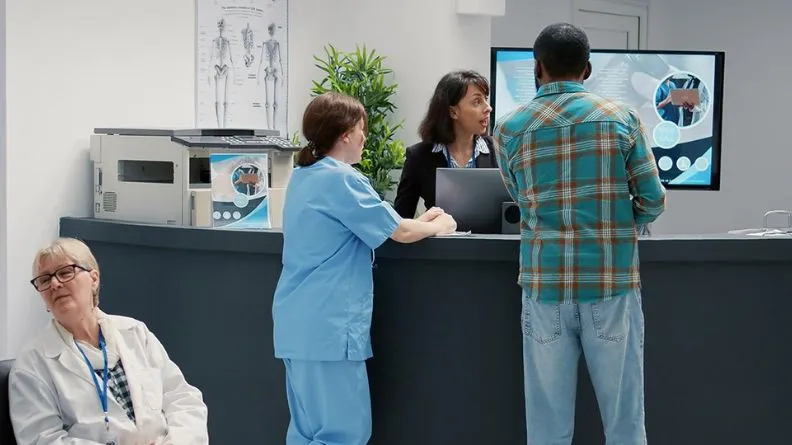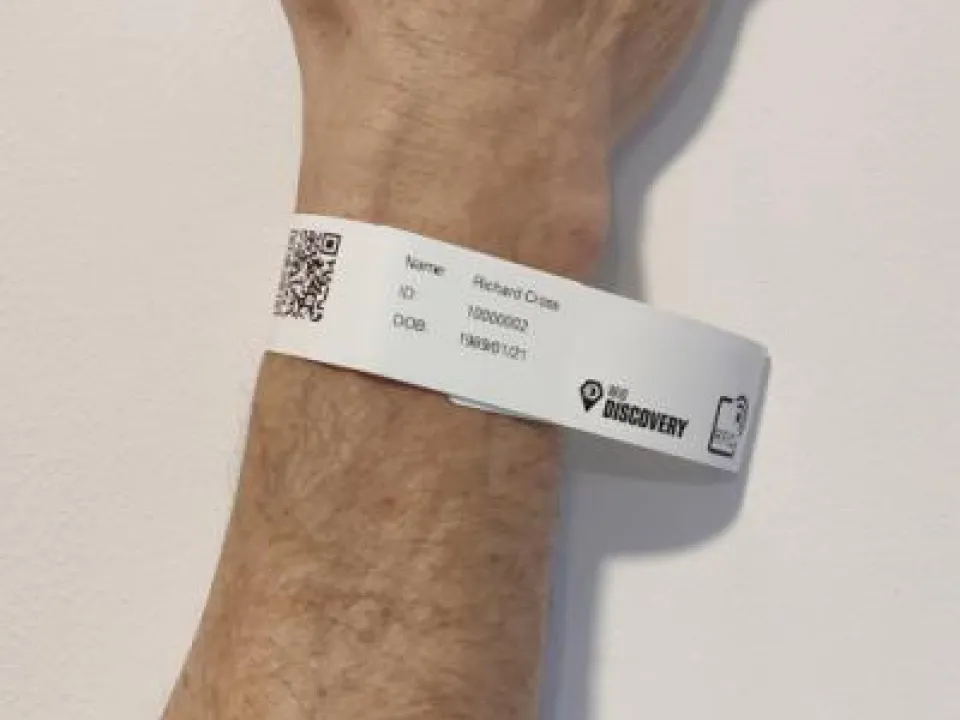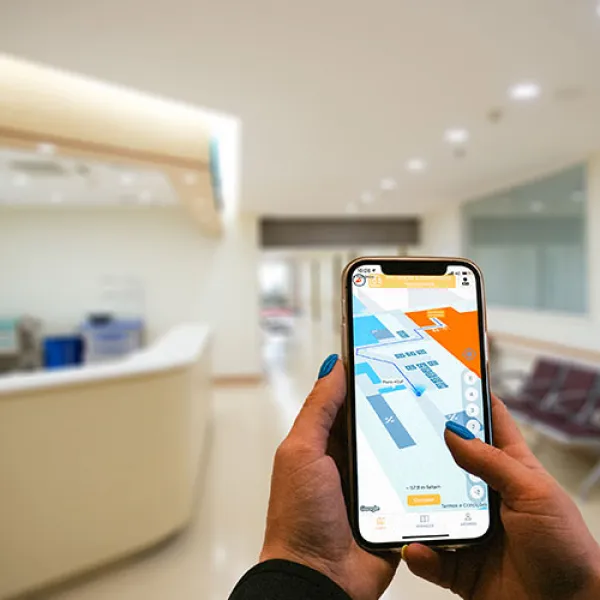Tracking patient flow in hospitals and outpatient departments

Benefits
Tracking the flow of patients to improve their safety and experience in hospital environments
With ever increasing pressures and patient numbers, hospitals and other healthcare providers often struggle to effectively manage the flow of patients. Inefficient procedures and lack of visibility can cause many challenges including care delays which compromise patient safety and satisfaction.
Harnessing the power of location tracking technologies such as radio frequency identification (RFID) and Bluetooth Low Energy (BLE), this solution enables a smooth, well-coordinated flow of hospital inpatients as well as users of outpatient services for example imaging departments, A&E or walk-in centres.
Real-time visibility of room occupancy helps clinical staff to maximise the available capacity without the need to physically check ward areas or treatment rooms. This saves time and helps to avoid care delays.
Readers can simply be installed at critical points of the care journey to track the movement of patients.
The system sends SMS messages or makes an automated phone call, when the patient has reached a certain step in the journey, saving time for reception staff.
By tracking the patient journey, the system can detect and alert clinical staff if key steps are missed or taking too long.
The management of data by the system is fully compliant with data protection laws.
The central software analyses care journey information and sends alerts in case any critical steps are missed. It also provides an overview for clinicians to identify possible bottlenecks, and sends up-to-date information to display screens in waiting areas.
How does patient flow tracking work?

Wristbands
On admission, each patient is issued with a disposable passive RFID or a reusable BLE enabled wristband. Passive RFID wristbands can be either delivered pre-printed or printed onsite. The wristband number is then associated with the patient record via a simple barcode scan.

Infrastructure
Readers installed at all critical points of the care journey track the movement of patients and send location data to a central database. Information displays are installed in outpatient waiting areas to inform relatives or carers of expected exit times.

Using the data
The central software analyses care journey information and sends alerts in case any critical steps are missed. It also provides an overview for clinicians to identify possible bottlenecks, and sends up-to-date information to display screens in waiting areas. Via an app patients can see their individual expected waiting times.
Increasing efficiency

By providing automated real-time visibility of room occupancy, our Patient Flow solution helps clinical staff to maximise the available capacity without the need to physically check ward areas or treatment rooms. This saves time and helps to avoid care delays. For outpatient departments (such as imaging or cancer treatment) the process of contacting patient relatives, carers or the relevant ward to inform them when the patient is ready for collection, can be automated.
The system sends SMS messages or makes an automated phone call, when the patient has reached a certain step in the journey, saving time for reception staff.
Avoiding errors and delays
By tracking the patient journey, the system can detect and alert clinical staff if key steps are missed or taking too long. This is particularly useful when there is a critical time window for imaging or other procedures to be carried out following a preparatory injection.
Improving patient experience
Providing real-time information about waiting times to patients and those accompanying them, improves the patient experience. In addition, streamlining processes helps avoid delays leading to an improved service and better care for patients during their hospital stay or outpatient visit.
Find out how tracking the flow of patients in hospitals and outpatient environments can improve efficiency, patient satisfaction and safety.
Download


